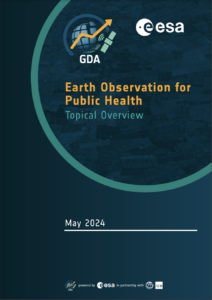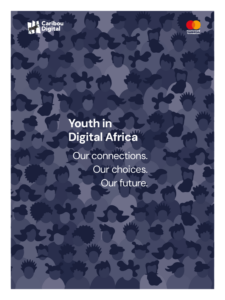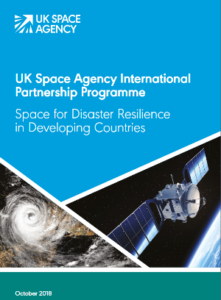The report is drafted by Caribou Space for the International Partnership Programme, a five-year, £30 million per year programme run by the UK Space Agency. This report outlines why and how the space industry has a critical role to play in addressing major challenges confronting disaster resilience in developing countries.
This report shows how space solutions can be deployed to great effect by developing countries to help solve environmental and societal challenges related to disaster resilience. The primary audience is the development and disaster resilience sector, and it is written as an introductory primer on the role of space in disaster resilience. Space technology and its application to disaster risk is evolving rapidly.
This report seeks to highlight the valuable work and insights provided by IPP. In doing so, it provides an overview of the subject together with examples of current thinking within IPP and similar international programmes.
There are four sections:
Background on disaster resilience and frameworks: provides the contextual challenge of disaster resilience and overviews existing efforts to address disaster resilience, including the UN Sendai Framework for Disaster Risk Reduction
Case for space: draws on the IPP disaster resilience portfolio to show that satellite can support the four critical areas in the Sendai framework in line with the Sendai specific recommendations for space
Seizing the opportunity: details what space solutions for disaster resilience exist, the different use cases, sustainability and business models, and stakeholder landscape
Additional information and guidance: the next steps once the opportunity is understood, with guidance on: accessing, processing and analysing satellite data; organisations to work with; and where to find further resources
There is also an Annex providing an overview of IPP‘s disaster resilience projects.
Explore latest publications

The European Digital Identity Wallet: Why it matters and to whom
By Caribou Digital
Digital Identity, Governance of Digitalization, Refugees and Forced Migration
The European Digital Identity Wallet: Why it matters and to whom
Digital Identity, Governance of Digitalization, Refugees and Forced Migration
Policy Brief
By Caribou Digital
June 25, 2024
By Caribou Digital

Earth Observation for Public Health: Topical Overview
By Carlotta Maucher
Earth Observation / Satellite Imagery, Health
Earth Observation for Public Health: Topical Overview
Earth Observation / Satellite Imagery, Health
Policy Brief
By Carlotta Maucher
May 28, 2024
By Carlotta Maucher

Youth in Digital Africa: Our connections. Our choices. Our future.
By Caribou Digital
Digital Financial Services / Financial Inclusion, Education/Skills/Upskilling, Gender in a Digital Age, Inclusive Digital Business Models, Persons Living with Disabilities, Platform Economies and Livelihoods
Youth in Digital Africa: Our connections. Our choices. Our future.
Digital Financial Services / Financial Inclusion, Education/Skills/Upskilling, Gender in a Digital Age, Inclusive Digital Business Models, Persons Living with Disabilities, Platform Economies and Livelihoods
Research Report
By Caribou Digital
May 23, 2024
By Caribou Digital
Pages
- Blog
- Call for Proposals: Platform Livelihoods Gender Study
- Collaboration for Impact
- Event Management
- Gender
- Home
- Identity and migration
- Live Learning: MTN DigiFin Fintech Edition – Apps in action
- Measurement and Impact Services
- MTN Live Learning
- Newsletters
- People
- Platform-Led Transformational Upskilling Report
- Projects & Services
- Publications
- Request for Proposals Video Storytelling: Platform Livelihoods & Covid-19
- Senior MEL advisor
- Skills for a Digital Age
- Strive Community Privacy
- Strive EU Privacy Policy


